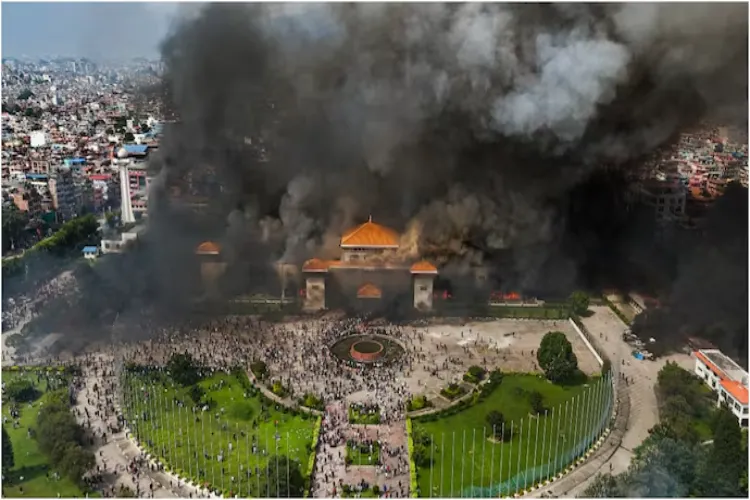By Ananya Pattnaik
Copyright pragativadi

The move comes after the army relaxed the curfew in Kathmandu, allowing court staff, lawyers, and litigants to gather on the premises to resume judicial work.
Supreme Court Complex Gutted in Gen Z Protests
The Supreme Court premises, located near Kathmandu’s Singha Durbar – which houses the offices of the prime minister and other ministers – was among several government buildings attacked during the September 9 protests.
Mobs, largely composed of students identifying themselves as “Gen Z,” stormed offices, burned vehicles, and set fire to court records and chambers.
26,000 ongoing case files and 36,000 archived files were destroyed, according to senior advocate and former Supreme Court Bar Association president Purna Man Sakya.
Vehicles, including those of judges and lawyers, were burned inside the court complex.
The registrar’s office, courtrooms, and even the chief justice’s chamber were charred beyond recognition.
Authorities have barred staff and lawyers from entering the damaged structures due to the risk of collapse.
Court Proceedings Resume Under Tents
On Sunday morning, white tents bearing the label “Supreme Court Nepal” were erected inside the court complex. Staff met with litigants, handed out new hearing dates, and began the process of rebuilding case files.
By 2 PM, at least 148 litigants had registered their presence with court officials and were briefed on how proceedings would continue.
“The courts could not function today but we are working to shift urgent hearings to an undamaged annexe building. Habeas corpus cases will be heard first as many will arise after the violence,”— Kedar Prasad Koirala, Secretary General, Nepal Bar Association
Call for Lawyers’ Support to Rebuild Case Files
The bar and bench have held multiple meetings to address the loss of records and decide next steps.
“All lawyers whose cases were before the Supreme Court have copies of their files. We have requested them to provide photocopies to the court so we can reconstruct case files and resume hearings,”— Purna Man Sakya, Senior Advocate
Court staff have already started accepting documents from lawyers and are working to digitize and rebuild the destroyed case archive.
New PM Vows to Rebuild Judiciary
Interim Prime Minister Sushila Karki addressed the nation on Sunday, acknowledging the complete destruction of judicial files and pledging government support to rebuild the justice system from scratch.
The government is also expected to prioritize the hearing of habeas corpus petitions and other urgent matters in the coming days, given the high number of detentions following the protests.
Unrest Continues Amid Political Transition
The violent protests led to the collapse of the KP Sharma Oli regime, creating a political vacuum that has fueled further unrest. While the curfew has been partially lifted, security forces remain deployed across Kathmandu to prevent fresh outbreaks of violence.



